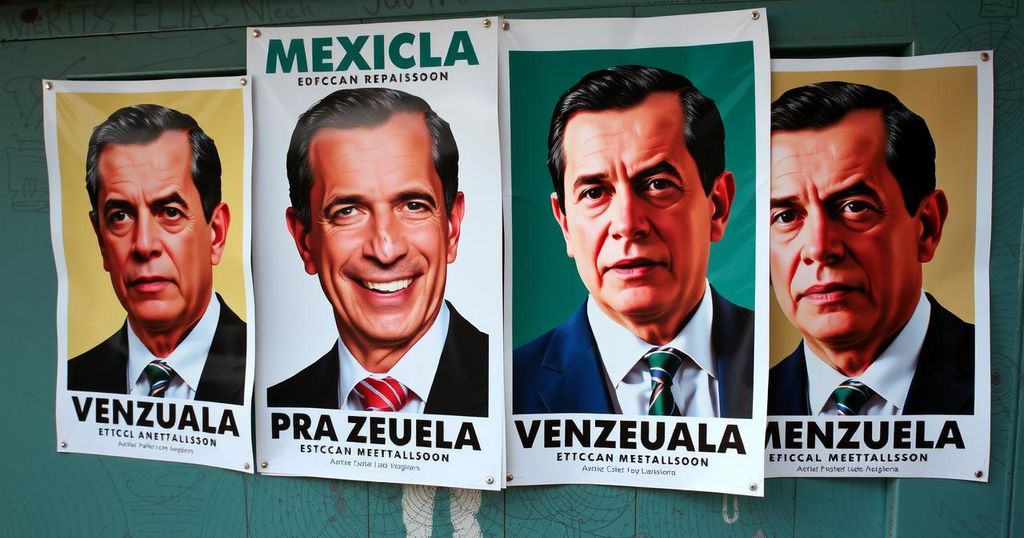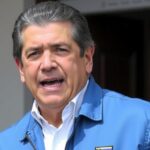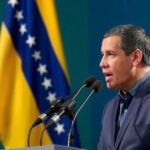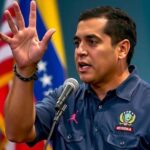Elections
Politics
” CABELLO, BOLIVIA, CALDERÓN, CORRUPTION, COSTA RICA, CUBA, DEMOCRACY, ECUADOR, ERNESTO PÉREZ BALLADARES, FOX, GEN, NATIONAL ACTION PARTY, NATIONAL ASSEMBLY, NATIONAL ELECTORAL COUNCIL, NICOLAS MADURO, NORTH AMERICA, PAN, PARAGUAY, POLITICS, SINALOA CARTEL, SOUTH AMERICA, TRADE RELATIONS
Clara Montgomery
Venezuela Issues ‘Wanted’ Posters for Former Mexican Presidents Amid Political Tensions
Venezuela has declared former Mexican presidents Vicente Fox and Felipe Calderón as unwelcome due to their support for opposition leader Edmundo González, who claims victory in the disputed 2024 elections against Maduro. The Venezuelan Assembly plans to prosecute them if they attempt to enter the country, while tensions rise amongst Latin American former leaders who have endorsed Gonzalez.
The tensions between Venezuela and Mexico escalated as Venezuela’s National Assembly declared former Mexican presidents Vicente Fox and Felipe Calderón as “personae non gratae.” This proclamation intensifies the ongoing political crisis in Venezuela, particularly directed at nine former Latin American leaders who backed opposition leader Edmundo González Urrutia, who claims to have won the disputed 2024 elections. Despite the government’s assertion that Nicolás Maduro has been re-elected, the Assembly announced intentions to prosecute the former leaders for alleged conspiratorial actions and threatened foreign invasion. Interior Minister Diosdado Cabello further inflamed the situation by distributing wanted posters of the accused leaders, alleging they are endangering Venezuelan peace. Fox and Calderón, both part of Mexico’s National Action Party, have provided support to González through social media but have not made formal statements regarding the election results. The Assembly’s targeted accusations extend to several other former presidents from Latin America as well. These developments emerge amidst a backdrop of international disagreement regarding the election results, with numerous countries, including the United States and several Latin American nations, recognizing González as the legitimate victor. In contrast, allies of Maduro, such as Russia and China, support the incumbent leader’s claims to power. Diplomatic communications have further complicated the matter, especially considering varying interpretations of democratic processes and election legitimacy across the continent.
Venezuela has been embroiled in a significant political crisis, compounded by disputes surrounding election legitimacy. Nicolás Maduro, despite widespread accusations of electoral fraud, asserts authority with the backing of his government and allied nations. Meanwhile, opposition leader Edmundo González’s claims to victory have received endorsement from several nations, igniting tensions between Venezuela and countries that support the opposition. The declarations against former Latin American presidents mark an aggressive diplomatic stance emphasizing Venezuela’s unwillingness to accept external criticism or intervention in its political affairs.
In conclusion, Venezuela’s recent actions against former Mexican presidents underscore the deepening rifts in the region regarding political legitimacy and sovereignty. The declarations and rhetoric employed by sensitive political figures reflect an urgent need for dialogue and verification amidst conflicting narratives about the 2024 elections. As various countries navigate the complexities of international support and opposition, the situation continues to develop with potentially significant geopolitical implications.
Original Source: mexiconewsdaily.com








Post Comment